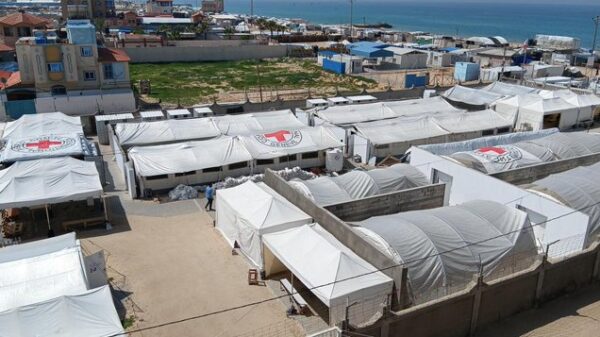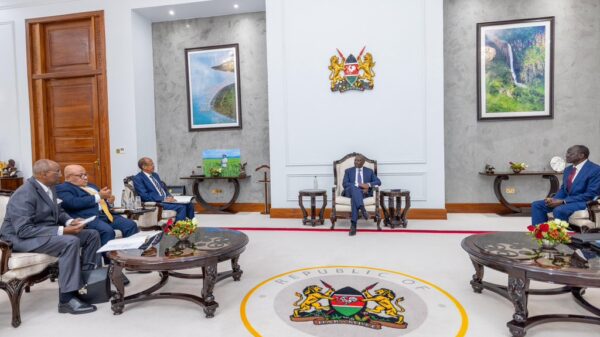The Building Bridges Initiative (BBI) report and the Constitutional Amendment Bill arising therefrom have been the subject of much debate especially with respect to certain proposals especially those that relate to the system of Government.
There are yet other proposals which while they may not receive much attention have the potential to impact our lives significantly that we need to pay closer attention to. One such proposal is that which relates to addressing insecurity and in particular radicalization and violent extremism.
In the BBI report, insecurity is one of the biggest challenges Kenyans want effectively addressed. Kenyans told the BBI Taskforce they did not feel sufficiently safe and secure, a perception that undermines the quest for a united and prosperous Nation.
Aggressive external forces including violent extremist groups were identified among the major threats to national security and the safety of ordinary citizens. This is perhaps informed by the recurrent terrorist attacks on Kenyan soil in recent years.
The BBI underscores the principle that the citizen’s safety and security is the primary aim of national security. In doing so, it advocates for a revamped counter-terrorism policy encompassing measures to detect and counter radicalization into violent extremism across State and public institutions.
It proposes a one-government approach to fighting and defeating terrorists and their sympathizers by roping in all government ministries, departments and agencies. A collective approach will help entrench a culture of vigilance and responsiveness to factors and conditions driving terrorism and other forms of extremist behavior both at national and county levels.
This approach to Preventing and Countering Violent Extremism (PCVE) is aligned with international goals on combating radicalization and terrorism. The United Nations Plan of Action to Prevent Violent Extremism 2015 calls on countries to take comprehensive steps in addressing underlying conditions fueling radicalization and recruitment into violent extremist groups.
Radicalization refers to a social and psychological process of being influenced into extreme ideologies. Counter-radicalization or de-radicalization is a long-term process involving a concerted and multi-stakeholder approach. PCVE is not just a matter for the security organs rather requires the active participation of both State and non-State actors including citizens.
Besides a unified government approach, BBI also calls for increased investment in innovation and coordination in the Preventing and Countering Violent Extremism (PCVE) as well as creation of a fund catering for victims of terrorism. The evolving threat demands innovative approaches to detecting, preventing and neutralizing extremism.
Violent extremists cannot sustain their sinister agenda without recruiting new members. Recent trends reveal that many Kenyan youths are especially vulnerable to radicalization due to political, economic and social marginalization.
Over 60 percent of the Kenyan population comprises youth. A large youthful population coupled with high unemployment levels are likely to drive extremism hence the need to accelerate de-radicalization policies targeting young people.
BBI addresses this by proposing a raft of policy, legal and institutional reforms to the country’s PCVE architecture including incorporating youth-oriented PCVE programs covering education and health.
Research by institutions like the World Bank have shown, schools and other learning environments offer fertile grounds for recruitment of young people by extremists. As such, strengthening PCVE entails investing heavily in education including vocational training.
Increasing educational opportunities prevents youth from turning to violent groups by addressing their immediate social and economic grievances. More importantly, it ensures our young people are equipped with vital employment and entrepreneurial skills.
Studies by civic bodies involved in combating violent extremism in Kenya like Haki Africa reveal a clear nexus between promoting social, economic and political opportunities, including jobs and access to education and health services, and rejection by youth of political extremism.
Still on education, teachers have a unique role in PCVE by identifying students exhibiting extremist tendencies and violence for counselling and psychosocial support, and also detecting undesirable elements seeking to radicalize them, for action by law enforcement agencies.
Access to health services is also crucial in PCVE. Experts warn that violent extremism has serious implications on mental, psychological and emotional wellbeing by propagating fear, anxiety and despondency. Lack of access to health services also constitutes a major pain point for vulnerable communities. Hence the need for public health sector reforms as part of broader PCVE agenda.
Moreover, improving basic social services like education and health fosters inclusive development benefiting all citizens besides reducing vulnerabilities that terrorists are likely to exploit. This is what former US President Barack Obama described as creating paths for ‘opportunity, justice and dignity’ so that vulnerable members of society including youth do not fall prey to extremists.
Youth represent the future of a Nation and have a critical role in achieving economic prosperity and political stability. By strengthening PCVE to address the needs of the larger Kenyan population, the BBI process will leave a positive imprint on Kenya’s war on terrorism and violent extremism.
Mr. Mwachinga is an Advocate of the High Court of Kenya. emwachinga@yahoo.co.uk

















































